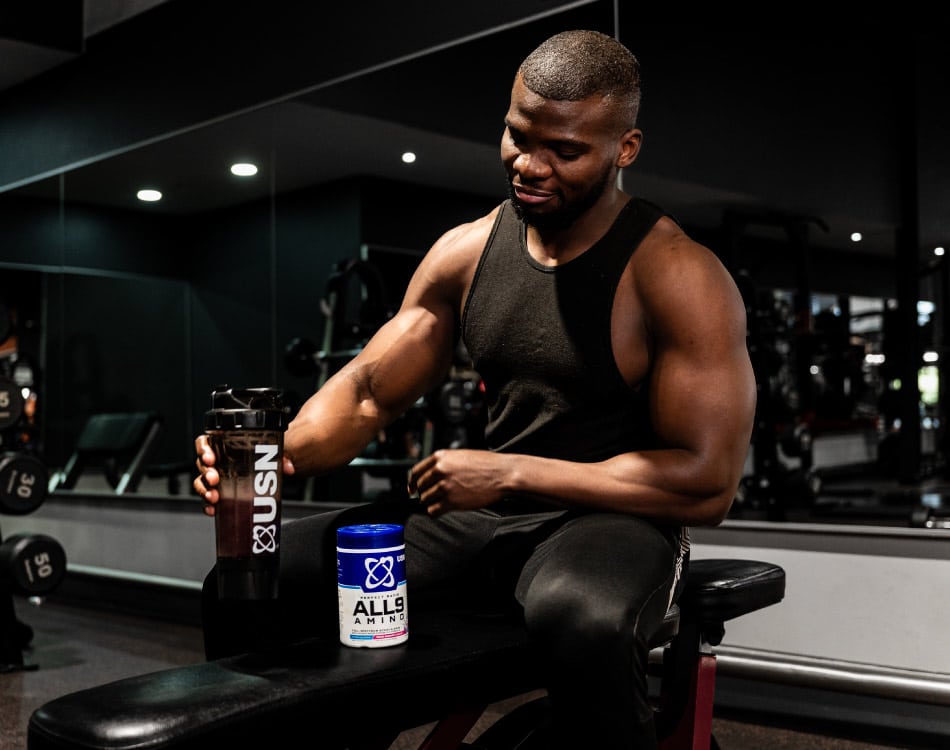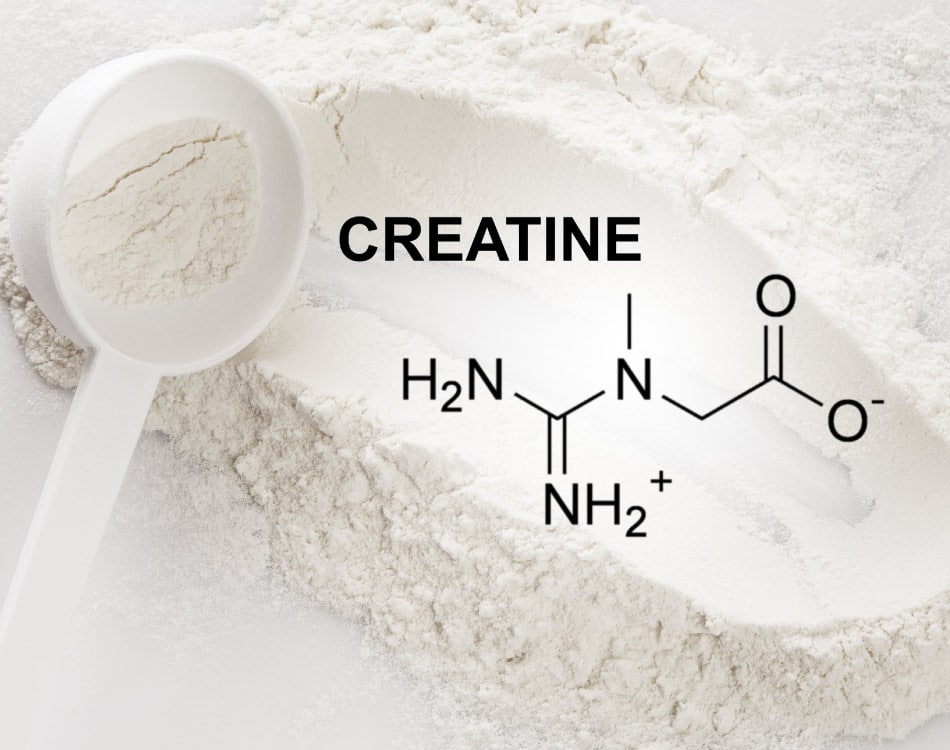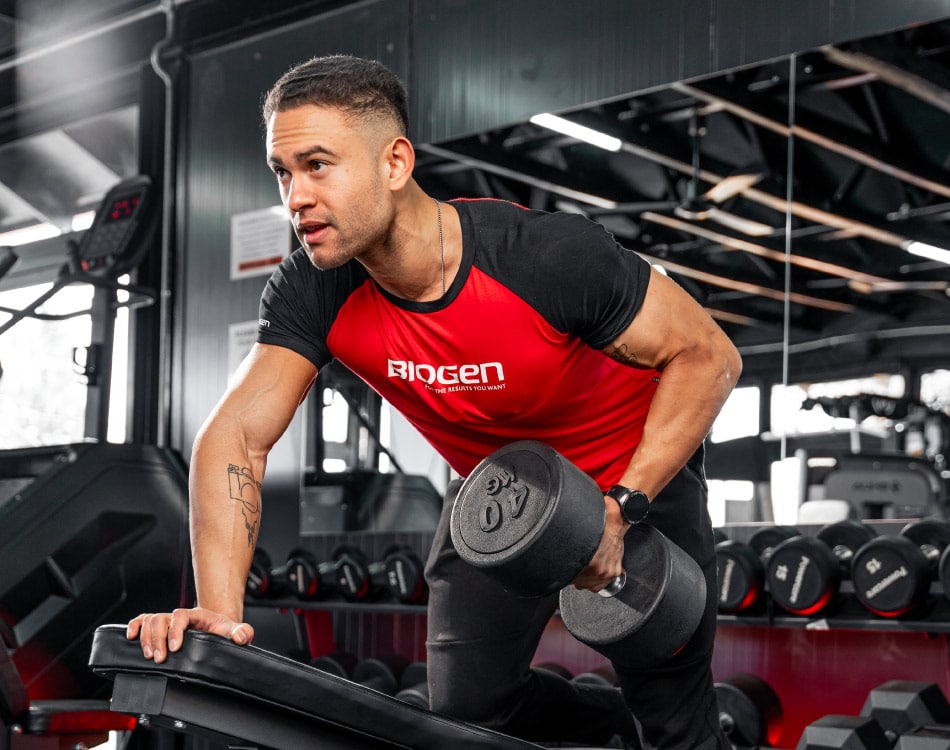In our quest to shed that unwanted fat and excess weight, we tend to turn to supplements in the weight-loss section like CLA, L-carnitine or a thermogenic product to give our fat-burning efforts a boost.
While these products can certainly accelerate your results, you may be missing one really important supplement… and you’ll find it in the muscle-building section!
The ABCs of BCAAs
Branched-chain amino acids (BCAA) consist of three essential amino acids. There are:
- Isoleucine
- Leucine
- Valine.
BCAAs are termed ‘essential’ amino acids as the body cannot manufacture them itself. As such, we must get them from our foods or supplements.
Find out what’s so essential about EAAs
In fact, BCAAs make up 40% of our daily requirement of all nine essential amino acids, which indicates their importance.
BCAAs are also vital components needed to make other amino acids, which are released in large quantities during intense exercise.
Furthermore, BCAAs are used directly for fuel by muscles, which stops the break down of muscle tissue during intense exercise. This enhances recovery and has an indirect benefit on performance at subsequent exercise sessions.
Supplementing with BCAAs can also help to lower the body’s cortisol response to exercise and may help ease delayed-onset muscle soreness after weight training.
While these amino acids clearly play important roles in the creation, maintenance and repair of muscle tissue, a growing body of research show that they might also aid fat loss.
BCAAs for fat loss
Over the years, a growing body of evidence has emerged that demonstrates the beneficial role BCAAs play in fat loss.
There seem to be three key areas where BCAAs benefit fat loss, namely:
- Their ability to decrease appetite while increasing metabolism;
- Their ability to decrease the breakdown of muscle protein while on a restricted diet; and
- Their ability to greatly reduce perceived exertion during training, which allows you to train longer and harder while in a state of reduced energy.
#1. How does it decrease appetite?
A 2012 study conducted by the Division of Endocrinology and Metabolism at the University of Texas Medical Branch showed that BCAAs have an effect on both insulin sensitivity and interact with the brain chemical serotonin to reduce cravings and hunger.
BCAAs also seem to reduce hunger and cravings by serving as a source for glycogen – the main energy source for working muscles. Producing glycogen from non-carbohydrate sources can help to balance your blood sugar levels.
This has various fat-loss benefits, as a 2011 study conducted by Gualano, et al. showed. The research team found that three days of high-dose BCAA supplementation by glycogen-depleted athletes increased fat oxidation (as well as exercise performance) compared to the placebo group.
#2. How does it decrease muscle breakdown?
When we reduce our calorie intake and train intensely in an attempt to lose fat and weight, less energy is available from the food we eat to fuel our exercise and daily activity.
One way our bodies adapt to this energy shortage is to ‘burn’ up to 5-10% of muscle tissue for energy through a process known as gluconeogenesis.
Supplementing with BCAAs before or during exercise will provide free form amino acids, which can be used directly for fuel and spares muscle tissue.
We reveal how BCAAs fit into a peri-workout supplement plan to spare and build muscle
This is supported by investigations conducted at the Department of Biochemistry of the Mie University Graduate School of Medicine in Japan, where researchers concluded that BCAAs play a key role in kick-starting gluconeogenesis by serving as an energy source.
Sparing muscle is important as muscle wasting can decrease your basal metabolic rate (BMR), which often leads to rebound weight gain.
#3: Reducing perceived exertion
BCAAs have the ability to decrease perceived exertion during a workout, which means dieters can work harder for longer while reducing their energy intake.
A 2012 study conducted at the University of Sao Paulo in Brazil found that rats that were given a BCAA supplement before a swimming test increased time to exhaustion by 37% compared to the control group.
This was attributed to the role that BCAAs played in energy production, as well as the supplement’s ability to interfere with the production of ammonia and lactic acid in muscles, which causes fatigue and limits performance.
Find out what’s the ideal supplement stack for effective fat loss.
If that wasn’t enough reason to consider buying a BCAA supplement, here are two more:
A 2008 pilot study conducted by Ordman AB et al. and published in the journal AGE showed that a 12g dose of the BCAA leucine taken in combination with oleic acid and DHA resulted in 1.8kg of lost weight over a two week period in women over the age of 38. Researchers concluded that the study “demonstrates that leucine … may cause weight loss through signalling mechanisms to the brain and adipose tissue.”
Interestingly, leucine also seems to interact with the anabolic cell signalling messenger mTOR, which stimulates muscle growth, both alone and together with resistance exercise. This is obviously beneficial to fat loss as it helps to boost your BMR, ensuring that you expend more calories throughout the day, even while at rest.

















Leave A Comment